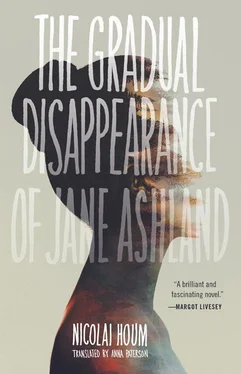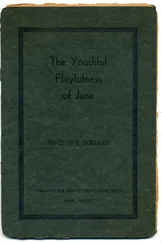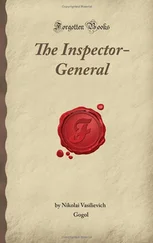When the police asked Myers if he was a habitual cocaine user, he said he wasn’t, but I had to do it now because we’ve got to be clean by June . At this point, the prosecution explained that the National Football League carried out regular anti-doping checks to reveal usage of performance-enhancing drugs, but tested for intoxicants only once a year.
Scott Myers could not recall the reason why he, at around eight in the morning, went down to start up his white four-door Ram 2500 and drove off on East Washington Avenue. Four blocks east of the Wisconsin State Capitol, a truck driver called 911 after having spotted Myers’s pickup racing along at high speed with two wheels on the planted median strip. An incident of reckless driving had been recorded by emergency services but had not been followed up with an immediate intervention.
Grounds for compensation , Jane’s lawyer had whispered at that point.
Myers carried on westward. At the intersection of Washington Street and Regent Street, he drove through the red light and hit a dark-gray sedan belonging to Gregory Ashland, the driver, who was killed instantly. An employee at a gas station on the opposite side of the railway tracks crossing Washington Avenue heard a noise she at first understood to be a loud explosion. She had assumed a train might be involved. She took the first aid kit that had been lying unused under the counter for years and ran outside to find the scene of the incident. She passed by the smashed sedan because, as she told the sheriff’s officer, she couldn’t bear the thought of what might be inside , and went to the white Ram, which had been less damaged. She saw that the driver’s cab was empty and returned to the first wrecked car, where she discovered eleven-year-old Julie Ashland in the back seat, squashed and immobilized.
Later, Jane couldn’t remember the return journey from the seminar in Chicago.
A bewildered man had been blocking the entrance under the neon sign of the Emergency Department. As Jane squeezed past him, he had exclaimed God is with you , and the smell of his yellow teeth would come back to her for days afterward. Several people in the reception area kept saying her name and talking to her as she sped through the hospital corridors like a corpuscle rushing through the bloodstream.
They had taped a pink, transparent tube to Julie’s forehead and strips of the same tape, spotted with yellow pus, went across the ridge of her nose and down her cheek, where they met and crossed more strips holding the respirator tube in place to the left of her front teeth, which gleamed faintly in the narrow crack between her lips.
No. Please.
Jane noticed that someone was holding her arm in a gentle, painful grip just above her elbow. She didn’t want the supportive hand because it confirmed that all this was true, that it really was Julie lying there, her lustrous, violet eyelids closed and her hair looking oddly dull, glued to her head on one side and fanned out over the pillow on the other. Julie’s eyebrows and her pale lips still formed perfect arcs whose symmetry was emphasized by the crisscrossing tape stuck all over her face by people Jane had never met.
A blanket had been pulled right up to Julie’s chin. Beneath the dark folds, Jane sensed the presence of something she was not meant to see, something broken, aching, packaged in a still-wet cast. Julie’s right hand lay on top of the cover. The fingers were lined up along the edge of the bed and the palm turned upward. An IV tube went up her arm to somewhere. At the edge of Jane’s field of vision, pale beings still hovered, apparently understanding what went on in Jane’s mind and wordlessly telling her what to do: Hold her hand . Jane did. She had felt its surprising weight before when she had held her sleeping daughter’s hand and, with a terrible chill spreading between her shoulder blades, imagined precisely a moment such as this.
She hadn’t been there when it happened. Facing fear alone had been Julie’s last experience. If she had been conscious after the accident, she might have called out to Greg but received no answer. Jane leaned close to Julie’s ear on the side that wasn’t covered in tape. Tears stuck to her cheek and hairline, and when Jane tried to wipe them off with the back of her hand, Julie’s head fell sideways a little.
No, it’s impossible to tell if Julie can sense anything, but it is good that you speak to her. After all, you never know… though, to be completely honest… but of course that is always the way when something has happened to your own child, anyone you are fond of, really, you shouldn’t wait to say…
So Jane tensed whatever muscles would obey commands and tried to whisper that she was so sorry for all the times she had been too strict, or hadn’t listened, or had disappointed Julie, for she must know that she was always in Jane’s mind, never out of her thoughts regardless of what she was doing, and that Jane couldn’t imagine a life without her, and then bad conscience struck her because Julie shouldn’t leave this world being worried about anything. Once more, she put her cheek against Julie’s and hugged her, noticing how different the girl felt, and all the time, her mind swung between feeling that she was observing someone else’s unfolding story and an infernally lucid perception of her own skull, enclosing her brain in a noisy, blood-red space.
Julie’s body shook momentarily and the small spasm traveled up through Jane’s arm.
“Julie?” Jane pressed the girl’s hand hard, rocked it gently.
“Is this because she can hear me?”
“Sure… it could be.”
This was a lie, Jane realized.
She examined Julie’s hand. The nails on the thumb and index finger were red, but the other three nails so pale that the white arcs at the torn cuticles were almost invisible.
The same thought recurred roughly every ten seconds: it ought to be possible to wind back time, to remake the end of the story because the definitive moment was just a moment and surely should be much easier to reverse than a long chain of cause and effect. This childish notion emerged and was rejected. Over and over again.
Without turning around, Jane asked if anyone had any nail polish. No one answered.
From some distant place, she heard her own voice.
“In my bag, maybe in the waiting room… I don’t know.”
“Don’t worry. We’ll find it.”
Six months later, she woke in the dark. She didn’t know if it was early in the morning or late at night. There was a smile on her face when she woke, a fool’s smile that lasted for the few seconds it took her to realize what was what. Then she had to start her breathing practice. These are my toes, I can curl them. Breathe out. Breathe in. These are my legs, they’re tensing now. Upward next, muscle by muscle.
She connected a charger to her cell phone and waited until it showed the time of day. Four missed calls, one from her father and three from an unknown number. Sitting on the edge of the bed, she tried to remember how it used to feel before when you had three unknown missed calls. Then her phone rang. The display showed the same number.
The man at the other end introduced himself as the prison chaplain at the Jackson Correctional Institute.
“I have tried to reach you at the university because I knew you had been working there. But you’re not there anymore, is that right? But the lady who took my call, she might be named Ellen? She told me that you were going away—or?”
The prison chaplain seemed to speak in questions and sounded like a seventeen-year-old. He said that Scott Myers had tried to commit suicide twice. Jane couldn’t cope with holding the phone to her ear just then. The small, boxed-in voice continued to speak into the mattress. A gap between the curtains let in a shaft of blue light that swept the room and read it like the beam of a scanner: naked thighs spreading on top of a crumpled sheet, steely reflections from cutlery on top of a pile of plates, bundles of clothes, scrunched-up papers like trembling small animals taken by surprise.
Читать дальше












